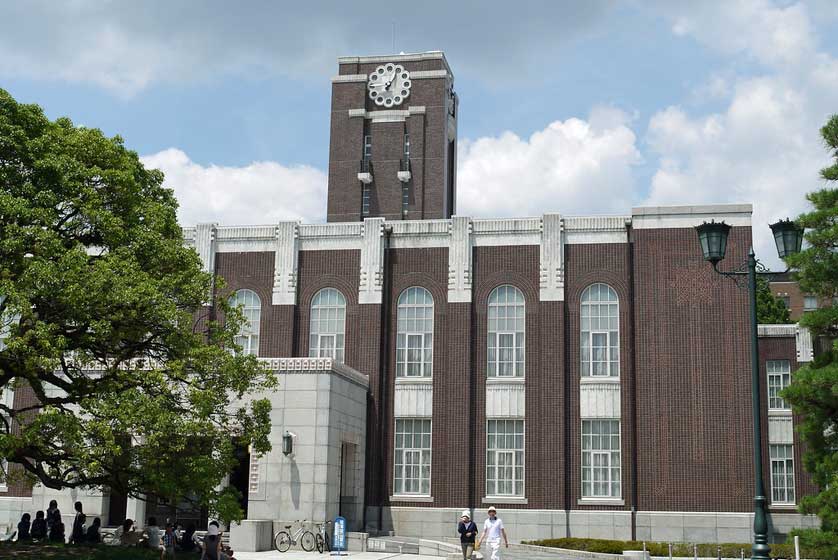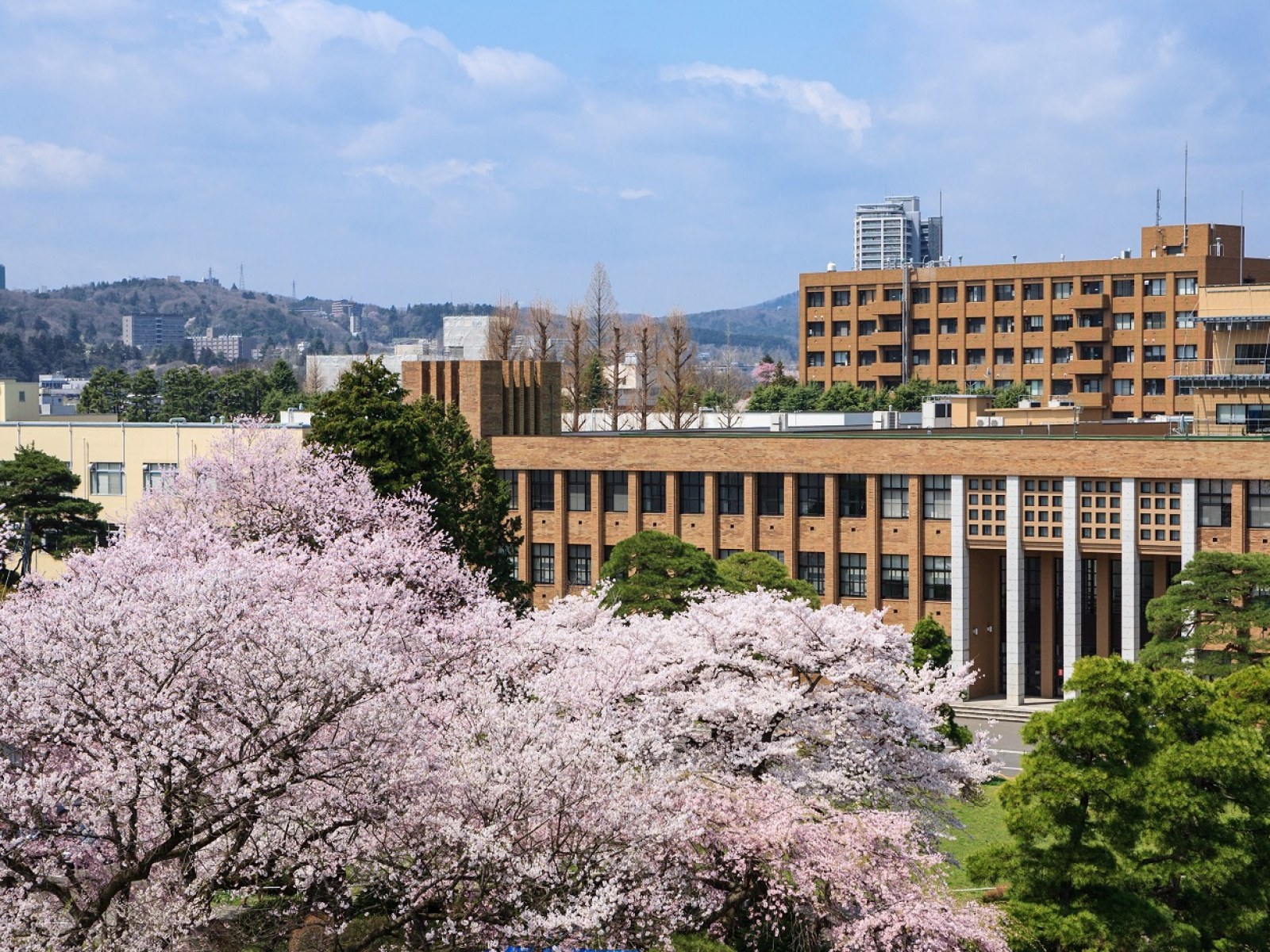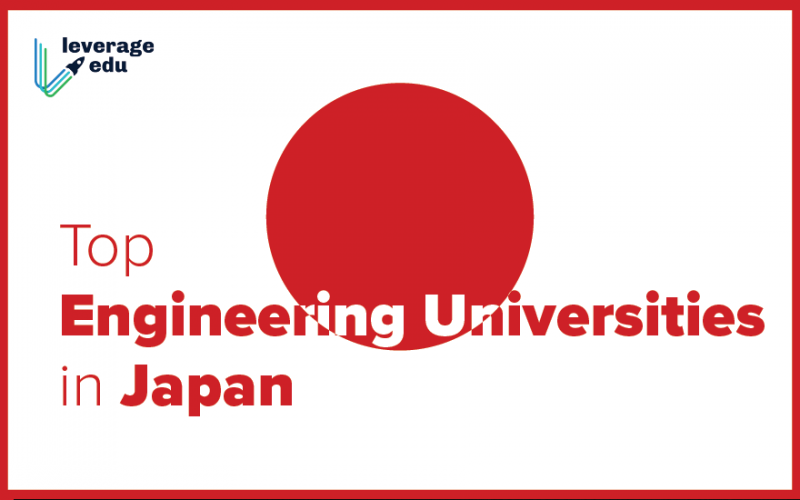Do you intend to pursue an engineering degree? If this is the case, you should look into Japanese university courses. In Japan’s higher education institutions, engineering education is well-known. Furthermore, a lot of practical education is provided to support the theoretical ideas. As a result, engineering graduates can readily find work not only in Japan but also in other countries. In this article, we’ll look at the best engineering universities in Japan.
This Blog Includes:
Why Study Engineering in Japan?
- Engineering Universities in Japan are known for world-class education, probably the best in the world. In terms of global competitiveness, Japan is ranked number one as per a report in 2019.
- Demand for non-Japanese engineers is growing in Japan. As per a report, Japan is expected to face a shortfall of 789,000 software engineers.
- Japan is known for tech innovation and several technology companies like Sony, Mitsubishi Motors, Toyota, Hitachi, Nikon, Canon, Honda, Nintendo, Kyocera, etc. are based out of Japan.
- You may save money as Japanese Universities are cheaper as compared to other universities in the West.
- The salaries offered in Japan are very competitive and in line with the other developed economies of the world.
Best Engineering Universities in Japan
| Name of University | QS World Ranking 2024 |
| The University of Tokyo, Tokyo | 28 |
| Tokyo Institute of Technology, Tokyo | =91 |
| Kyoto University, Kyoto | 46 |
| Tohoku University, Sendai | 113 |
| Osaka University, Osaka | 80 |
| Kyushu University, Fukuoka | =164 |
| Hokkaido University, Sapporo | 196 |
| Waseda University, Tokyo | =199 |
| Nagoya University, Nagoya | =176 |
| Keio University, Tokyo | 214 |
University of Tokyo

The University of Tokyo, Japan’s first imperial university, was founded in 1877 and is one of the country’s most renowned and prestigious higher education institutions. The university, known as Todai, was ranked second in the world in 2011, behind Harvard, for the number of alumni holding CEO positions at Fortune 500 businesses. In addition, the University of Tokyo has produced 15 of Japan’s 62 prime ministers, as well as five astronauts. The University of Tokyo has 30,000 students enrolled in as many as ten faculties and 15 graduate schools, with 2,100 international students. It also offers undergraduate programs in English, which are unusual for a Japanese university: the International Program on Japan in East Asia and the International Program on Environmental Sciences.
Kyoto University

Kyoto University is a significant research university in Asia that is known for producing world-class scientists, including 13 Nobel Laureates. The institution’s motto, “freedom of intellectual spirit,” is a value it tries to instil in the 22,000 undergraduate and graduate students that attend the school, which was founded in 1897. Kyoto has continuously ranked in the top two universities in Japan, the top ten institutions in Asia, and the top 50 universities in the world, establishing itself as a major academic player. Since its foundation, the Yoshida campus has been the core of the university, and it is noted for its unique architecture, which includes everything from brick buildings like the Clock Tower Centennial Hall (the institution’s symbol) to modern laboratory facilities.
Tokyo Institute of Technology

Tokyo Tech’s three campuses — two in Japan’s clean, vibrant capital and one in neighbouring Yokohama — offer a warm and welcoming environment for a truly unique learning experience. All students are exposed to the joys of research from a young age, thanks to the Institute’s long history of practical scientific and engineering education. As laboratory members, students get direct interaction with world-class researchers, and findings from research centres such as ELSI are incorporated into classes. At Tokyo Tech’s DLab, teachers, students, and members of the general public come together to find solutions for a better tomorrow. The Institute’s hands-on approach is evident in the Institute’s consistently high graduate employability ratings.
Osaka University

Osaka Institution, which was founded in 1724 and is ranked 80th in the QS University Rankings 2024, is Japan’s sixth oldest university. It is also among the top 40 universities in the world for:
- Dentistry
- Chemical engineering
- Physics and astronomy
- Natural sciences
Tohoku University

Tohoku University, Japan’s first university to admit female and international students, continues to recruit the world’s most talented scientists and researchers to carry on the baton and perform leading research. It is one of the best Asian colleges in terms of international rankings.
Application Process for Engineering Universities in Japan
- Make an application to a Japanese university.
- Find out where your university application should be sent because there is no centralized online application platform, overseas students must submit their applications through the website of the university they wish to attend in Japan.
- Meet the university’s requirements for admission.
- Find out what language requirements there are
- You may be required to demonstrate both your English and Japanese skills to study in Japan. This is a decision made by each school on its own. You can transmit test results for English proficiency to:
- TOEFL iBT is a computerized version of the TOEFL exam.
- Academic IELTS.
- PTE Academic is a test that assesses your ability to communicate
- You must pass the Japanese-Language Proficiency Test to demonstrate your Japanese language ability (JLPT).
- Before the application deadlines, submit your application. Depending on the system, Japanese institutions have varied application dates. The best location to learn more about these key dates is on the university’s official website.
- Steps to take once you’ve received your admission letter –
- After obtaining the acceptance letter/university offer letter, confirm your enrollment.
- In Japan, you must apply for a student visa.
- Make an application for medical insurance.
- Apply for scholarships and grants.
Documents Required
The following are some of the most typical documents that students must present while applying to a Japanese university:
- The application form that has been completed
- Proof of application fee payment (if applicable).
- To apply for a Bachelor’s degree, you must have a high school diploma.
- Bachelor’s degree (required to apply for a Master’s degree).
- A record transcript
- Photograph (passport size) (s).
- A copy of a valid passport and/or a government-issued photo ID
- Letter of Motivation
- Recommendation letter(s)
- Statement of purpose
Cost of Studying
| Type of University | Average Costs for the first year (YEN) | INR (Approximately) per year |
| National Universities | 537,800 | 3,70,762 |
| Public Universities | 537,800 | 3,70,762 |
| Private Liberal Arts Universities | 7,46,200 | 5,14,440 |
| Private Science Universities | 10,49,000 | 7,23,200 |
Cost of Living
The cost of living is the second most essential factor to consider while deciding whether or not to study abroad. Lodging, food, transport, recreation, and other incidental costs are included in these costs. The cost of living in Japan varies significantly based on the city, personal preferences, lifestyle, and other factors.
| Item | Expense in Yen |
| Rent | 35,000 ¥ (Rs 22,750) |
| Food | 28,000¥ (Rs 18,198) |
| Commute | 5,000 ¥ (Rs 3,250) |
| Hobbies and Entertainment | 6,000 ¥ (Rs 3,900) |
| Misc. | 9,000 ¥ (Rs 5,850) |
| Insurance and medical | 3,000 ¥ (Rs 1,950) |
| Utilities | 7,000¥ (Rs 4,550) |
Scholarships for Engineering Universities in Japan
| Scholarship | Field of Study | Amount |
| Japanese Government (MEXT) Scholarships for Young Leaders Program at GRIPS | Master of Public Administration or Master of Public Policy | Full scholarship |
| ADB-Japan Scholarship Program for Developing Countries in Asia and the Pacific | Postgraduate studies in economics, management, health, education, agriculture, environment, natural resource management, science and technology, and other development-related fields. | Full academic, travel, insurance, monthly expenses, etc. |
| Japanese Government Scholarships for International Undergraduate Students | Undergraduate students in two major fields: (1) Social Sciences and Humanities and (2) Natural Sciences. | Tuition fees, monthly subsistence, and a monthly stipend. |
| Japanese Government Scholarships for International Research Students | The fields of study may be restricted to particular fields by the Japanese Embassy | Monthly allowance, monthly subsistence, travel expenses, tuition fees, travel to and from Japan |
| Japan-IMF Scholarships for Asians | Graduate courses in macroeconomics | All academic and travel expenses, books, monthly subsistence, etc. |
| Japan Human Resource Development Scholarships (JDS) for Developing Countries in Asia | Public Administration, Business Administration, Economics and Finance, Law, Public Policy, International Relations, Information Technology, Industrial Development and other related fields | Full academic, travel, insurance, monthly expenses, etc. |
FAQs
Ans. University of Tokyo, Kyoto University, Osaka University and Nagoya University are some of the top engineering universities in Japan.
Ans. A family of four estimated monthly costs are 3,128.7$ (441,245.9¥) without rent. A single person’s estimated monthly costs are 887.0$ (125,089.6¥) without rent. The cost of living in Japan is, on average, 29.9% lower than in the United States.
Ans. IELTS is an approved English language test which is widely accepted for study in Japan.
Related Reads:
This was all about the Engineering Universities in Japan. If you are someone who is planning to pursue your Engineering degree in Japan, then it’s time to fasten your seatbelts and pull up your socks! The experts at Leverage Edu are just a call away to provide you with all the guidance and mentorship that will make your dream to study abroad a reality! Call us on 1800572000 and book your FREE meeting with our counsellors today!
-
nice info sir thanks
-
Hello, glad you enjoyed our blog!
-

 One app for all your study abroad needs
One app for all your study abroad needs





















 45,000+ students trusted us with their dreams. Take the first step today!
45,000+ students trusted us with their dreams. Take the first step today!



2 comments
nice info sir thanks
Hello, glad you enjoyed our blog!